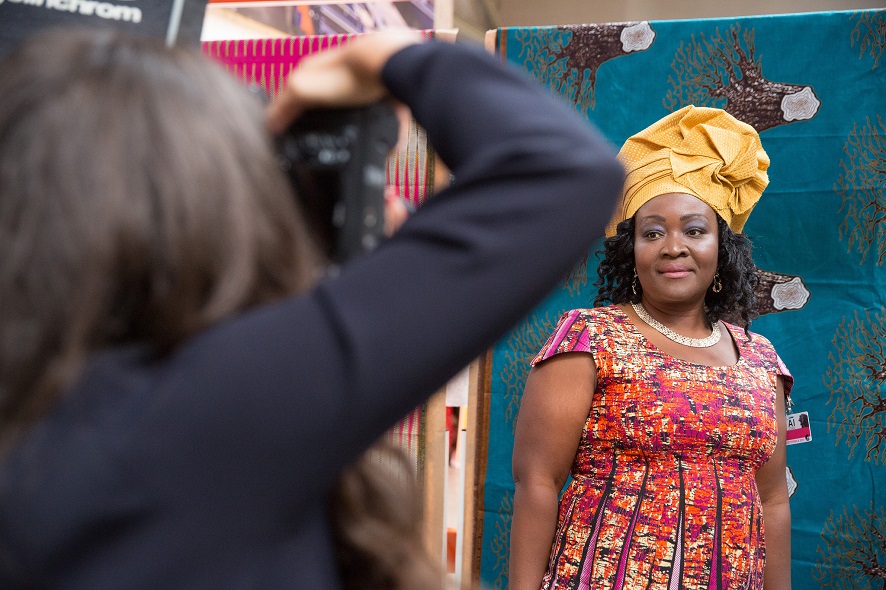What challenges are facing volunteer helpers? What skills are in demand at the moment, how’s the current situation for refugees, and what goes into successful integration? These are questions that Nicole Sonnleitner and Melanie Jungwirth of ZusammenHelfen in Oberösterreich deal with daily.
In order to carry on the conversation with volunteers and refugees and also to show esteem and to motivate, a ZusammenHelfen Conference is once again being held at the Ars Electronica Festival. Volunteers, interested members of the public, and refugees are cordially invited to come to POSTCITY Linz on the Day of Encouragement, September 8, 2018 at 10:00 to hear talks, participate in discussions and engage in an exchange of views. On all five days of the festival, September 6-10, the ZusammenKommenLab invites festivalgoers to drop in for tinkering, experimenting and cooking.
In this interview, Nicole Sonnleitner and Melanie Jungwirth from ZusammenHelfen in Oberösterreich tell us more.
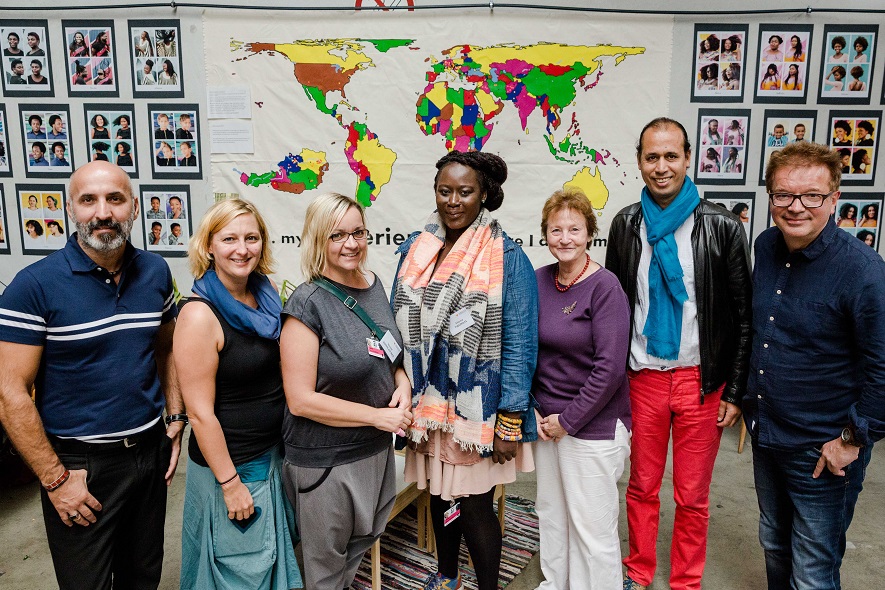
Kenan Güngör („think.difference“, integration expert) , Melanie Jungwirth (ZusammenHelfen in Oberösterreich), Nicole Sonnleitner (ZusammenHelfen in Oberösterreich), Abena Twumasi (ZusammenHelfen in Oberösterreich), Gudrun Biffl (Donau-Universität Krems, Department Migration and Globalisation) , Rachid Badouli („La Fondation Orient-Occident“, Morocco), Rudi Anschober (Integration Councillor, Upper Austria). Credit: Land OÖ
This will be the third ZusammenHelfen Conference at the Ars Electronica Festival. What will you focus on?
Nicole Sonnleitner: We’re increasingly noticing that people who’ve made a commitment to providing aid to refugees are slowing running out of energy. We want to renew their motivation so we’ve chose Day of Encouragement as this year’s theme. In light of the current political situation and its impact on refugees, it’s important to strengthen the resolve of volunteers. The point is to encourage and strengthen one another. That’s what we aim to do with the conference, the individual themes and the speakers.
That means that, even in 2018, there’s still a need for committed volunteers.
Nicole Sonnleitner: The need is greater than you would think. Many NGOs now have difficulty finding volunteers. There are several reasons for this. This situation has persisted for so long, since 2015. Another reason is that many volunteers are experiencing a certain frustration about the refugees’ situation, which has led to many dropping out. As for the refugees themselves, the need is still great. They need support in getting integrated in Austria. There are people who have a hard time learning German; those who need help with their education, in their dealings with government agencies, finding housing, getting medical care—in all areas of everyday life, as it were.
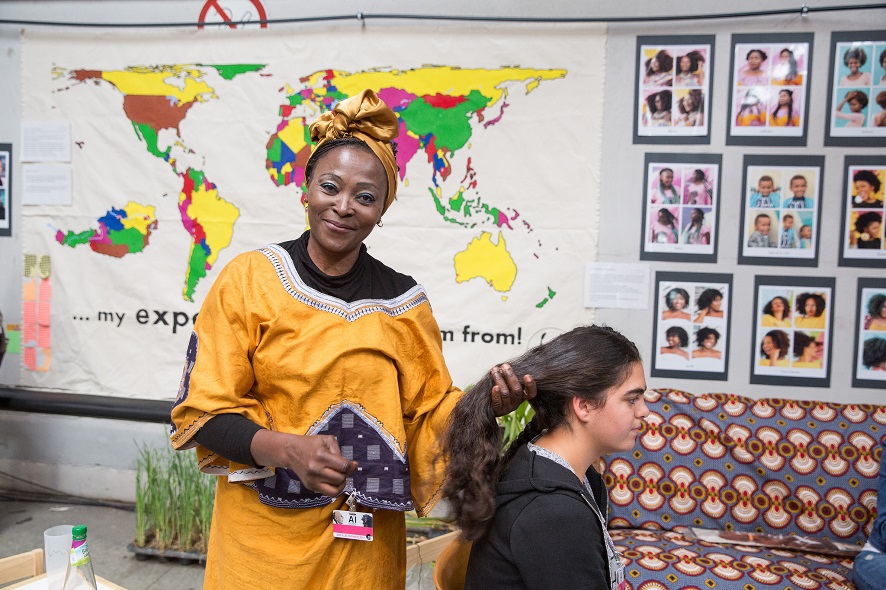
Credit: Tom Mesic
So, how can you encourage volunteers at a conference?
Melanie Jungwirth: First off, I want to stress the fact that this isn’t just for helpers. The new name, ZusammenHelfen Conference, is emblematic of an effort to enable refugees to increasingly have a say. People who’ve been living in Austria for several years will report on their experiences, there’ll be a Poetry Slam, and accounts of where help is still needed. One important topic is the legal situation. Anny Knapp, chairwoman of the asylkoordination österreich association, will talk about what can be done after a second official refusal to grant asylum. Then there’ll be a panel discussion that’s meant to be encouraging—it has to do with the future of integration policymaking in Austria. The panelists will include representative of national organizations such as Erich Fenninger of Volkshilfe, and Ferdinand Maier of Allianz Menschen.Würde.Österreich. We’ll also have a representative of Caritas, the Austrian Integration Fund and the Foreign Ministry.
The ZusammenHelfen Conference will also host a meeting with WIR–Welcome and Integration for Refugees in Europe, an EU project that will be presented at here at the festival. These are people from Sweden, from Latvia, from all over Europe, which goes to show that this is a matter of major importance throughout the EU.
Later, we’ll hear from Adnan Ghani, a Syrian refugee in Sweden. His project, Support Group Network, is a group in which refugees support one another. The last speaker is Ali Mahlodji, an entrepreneur, author and EU Youth Ambassador. I think that if there’s anyone who can deliver encouragement in Austria, then it’s Ali Mahlodji. He gets his message across very effectively. He’s held many jobs, tried a lot of things, was a school dropout. His talk is highly motivating.
Nicole Sonnleitner: He’s able to motivate young people and give them hope. For our Day of Encouragement, we wanted to bring in someone exactly like him, someone who, on one hand, can speak from personal experience and has gone though a lot, and, on the other hand, can bring in his professional perspective as an entrepreneur. He’s the right man to impart energy and motivation, and end the conference on a high note! That’s important for both the refugees and the volunteers.
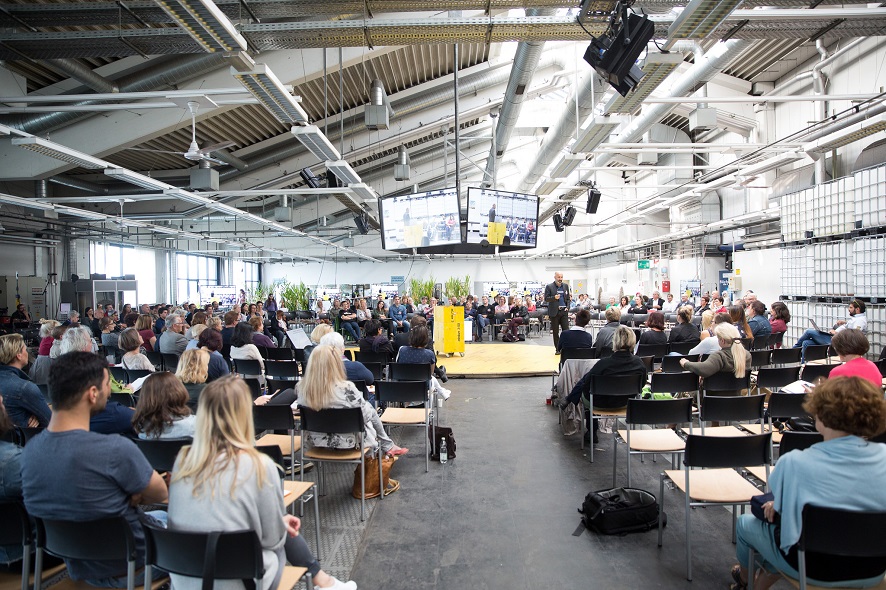
Credit: Tom Mesic
After the conference, you’ll also present Social Furniture. What’s this all about?
Nicole Sonnleitner: We’re delighted that the Ars Electronica Festival staff approached us at ULF–Independent State Volunteer Center with this great idea! In this project, refugees work together with Austrian volunteers and contribute cool custom-made wooden furniture to the festival infrastructure. After the festival, the pieces of furniture will be donated to refugees, NGOs and the House of Human Rights that was just opened by SOS-Menschenrechte. And we’ll also be holding a raffle in which conference participants can win one of three pieces of custom-made furniture. This project encompasses many of our highest priorities: creating something together, building something together, having fun, enabling refugees to do something meaningful, to get active and receive recognition and esteem for it, and meeting new people. These are essential things that most of us take completely for granted. And beyond that, this furniture is absolutely excellent!
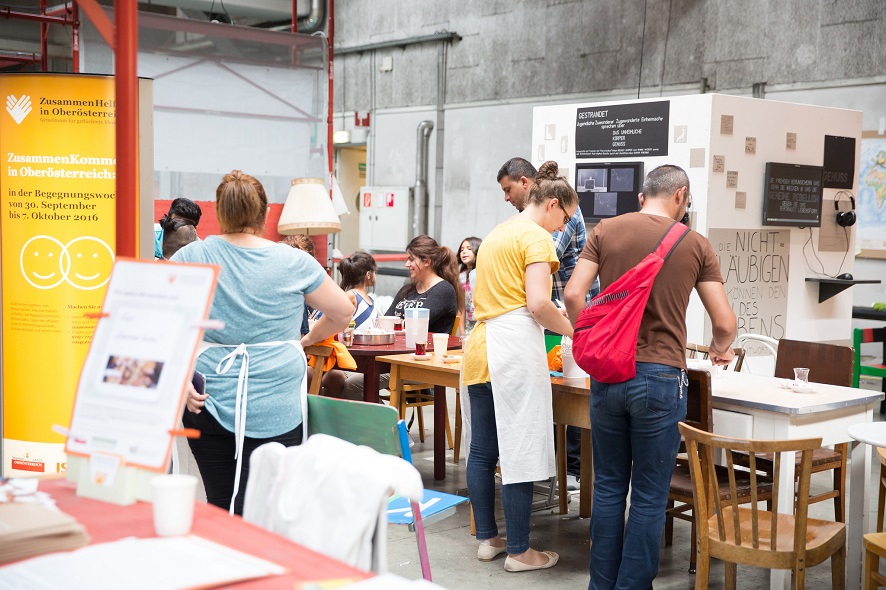
Credit: Tom Mesic
Will there be a ZusammenKommenLab again this year?
Melanie Jungwirth: Yes! In addition to the conference, each day there’ll be a ZusammenKommenLab where we’ll be doing lots of things together. The cooking will be done by Linz’s Über den Tellerrand [literally: beyond the edge of one’s own plate] community, with a new culinary theme every day. And in line with the festival theme, we’ll also have a Repair Café. We’re also sewing patchwork pillow covers and perhaps blankets, for which we’ll take old textiles and clothes and make them into something new. We’ll either donate these pieces, or visitors can take them home with them.
This conference is taking place amidst a media art festival, which means this is a meeting of two very different worlds. Does that help with outreach to people beyond the volunteer scene?
Nicole Sonnleitner: Basically, we have the feeling that this cooperation can be fruitful for both sides. That’s also the reason we’re holding this conference at the Ars Electronica Festival for the third time. We find that festivalgoers are ready, willing and able to broaden their horizons; otherwise, they probably wouldn’t be here at this very visionary festival. We volunteers also want to be this visionary, and in a setting like this, we can reach a lot of people on behalf of our cause. If we can motivate a few of these people to take some time and confront this very important issue, then we’ve been successful! Needless to say, the festival is also a wonderful ambience for volunteers because it’s encouraging when so many international guests are present. That’s what it’s all about: HelpingTogether, ComingTogether. That empowers us all; that motivates us.
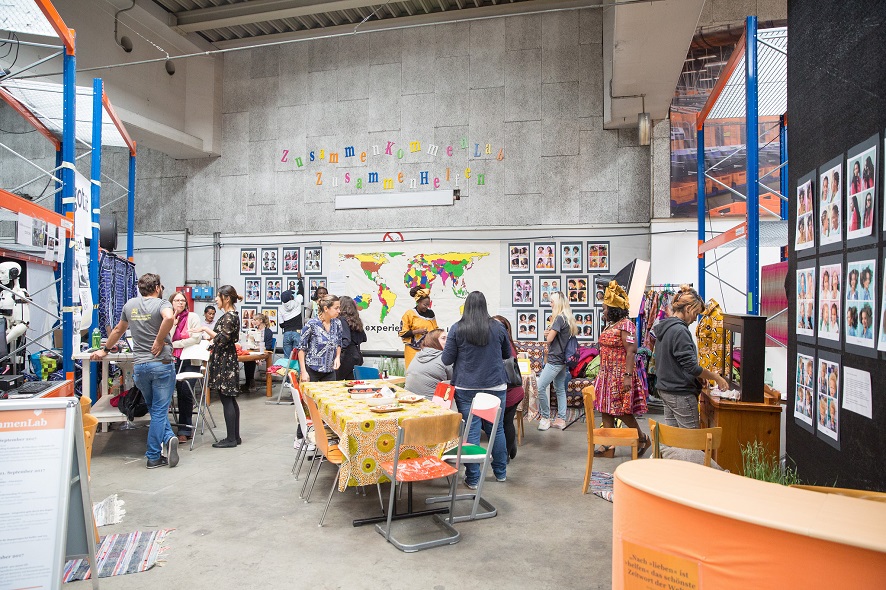
Credit: Tom Mesic
You could say that your conference must necessarily be a confrontation with error, which is this year’s festival theme. What mistakes are being made in the integration process in Austria?
Nicole Sonnleitner: This is a very complex topic. The biggest mistake that can be made—also by private persons—is failing to consider this issue. And conceiving culture or integration as something static! This is precisely what experience in recent years has shown—that it can’t work this way! Integration is dynamic; integration has to be configured jointly. The way I see it, this is essential. Perhaps there were errors and omissions in this emergency situation in 2015, but I think that might have been why civil society reacted with such a high level of commitment and achieved so many positive outcomes. The point is to learn from this and to jointly create a concept of integration or culture in Austria. All stakeholders have to make a commitment and be consulted.
Error isn’t only making mistakes; it’s also deviation from the norm. Refugees are often seen as such a deviation, but what actually is the norm with respect to integration and culture?
Melanie Jungwirth: I believe that almost everything is a deviation from the norm. And who establishes this norm?
Nicole Sonnleitner: In my opinion, the guiding principle for integration in Upper Austria is an attempt to find a norm or a common denominator for integration in Upper Austria. Basically, recent years have shown that what we believe to be the norm can very quickly be rocked to its foundation. There are influences and circumstances that shake up this norm. I can describe this with accounts of events we volunteers have experienced. For years, we attempted to establish a norm for good framework conditions for volunteers. Then came, apparently suddenly, this big wave of refugees in 2015 and, quickly, there was no longer a norm, a standard, with respect to volunteer work. Many of the things that we had previously considered suddenly seemed absurd, were of no use because the situation demanded something different. It was a crazy learning process. In that situation, it was really dramatic because we didn’t know anymore how we should respond, how we could possibly coordinate all the aid initiatives, what our role actually was. We recognized that we did indeed have to continue implementing good framework conditions but that we also had to be prepared to rethink them and to take new approaches. Incessantly attempting to stubbornly enforce a norm or a fixed concept cannot work.
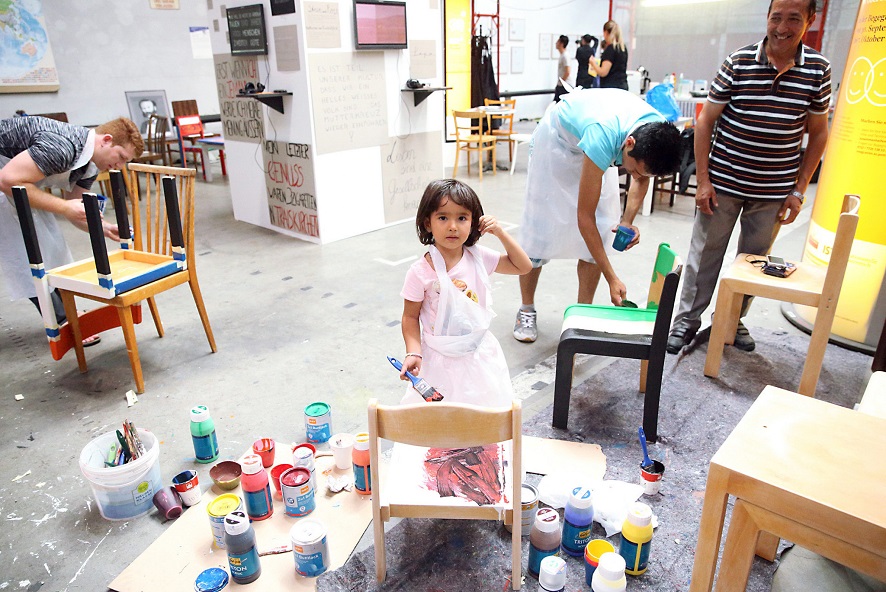
Credit: Land OÖ
How can you jointly negotiate a new norm or create a shared culture?
Nicole Sonnleitner: This definitely takes a lot. Basically, there has to be readiness to do this. It calls for a lot of courage, tolerance, respect, and all the stakeholders have to work together and make a positive contribution. In the current situation, I have to make a concerted effort to not lose my faith that something like this can be achieved.
Yet, year after year, you hold your conference and your activities to face this challenge.
Nicole Sonnleitner: We think that we can make a positive contribution to this with our HelpingTogether activities. They motivate volunteers and us too. We talk more and more about ComingTogether—for example, in the Lab. I’d love it if, at some point, we could talk about LivingTogether activities, because that would mean that we had accomplished quite a lot.
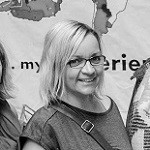
Nicole Sonnleitner has served as director of the ULF–Independent State Volunteer Center since 2008. This organization’s point of contact is ZusammenHelfen in Oberösterreich. She is a trained nurse and also studied social work. Both occupationally and personally, she knows how important and valuable involvement by volunteers is.
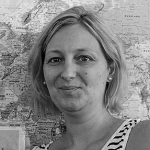
Melanie Jungwirth has worked for ZusammenHelfen in Oberösterreich since 2017. She studied communications, and has extensive experience as a volunteer in social welfare projects including those involving refugees.
The ZusammenHelfen Conference at the 2018 Ars Electronica Festival gets underway on September 8 at 10:00 in POSTCITY Linz. Attendance is free of charge. Please preregister here. Throughout the Ars Electronica Festival, September 6-10, 2018, a ZusammenKommenLab will be set up in POSTCITY to present various projects and ideas subsumed under the heading “Together for Refugees.”
To learn more about Ars Electronica, follow us on Facebook, Twitter, Instagram et al., subscribe to our newsletter, and check us out online at https://ars.electronica.art/news/en/.
